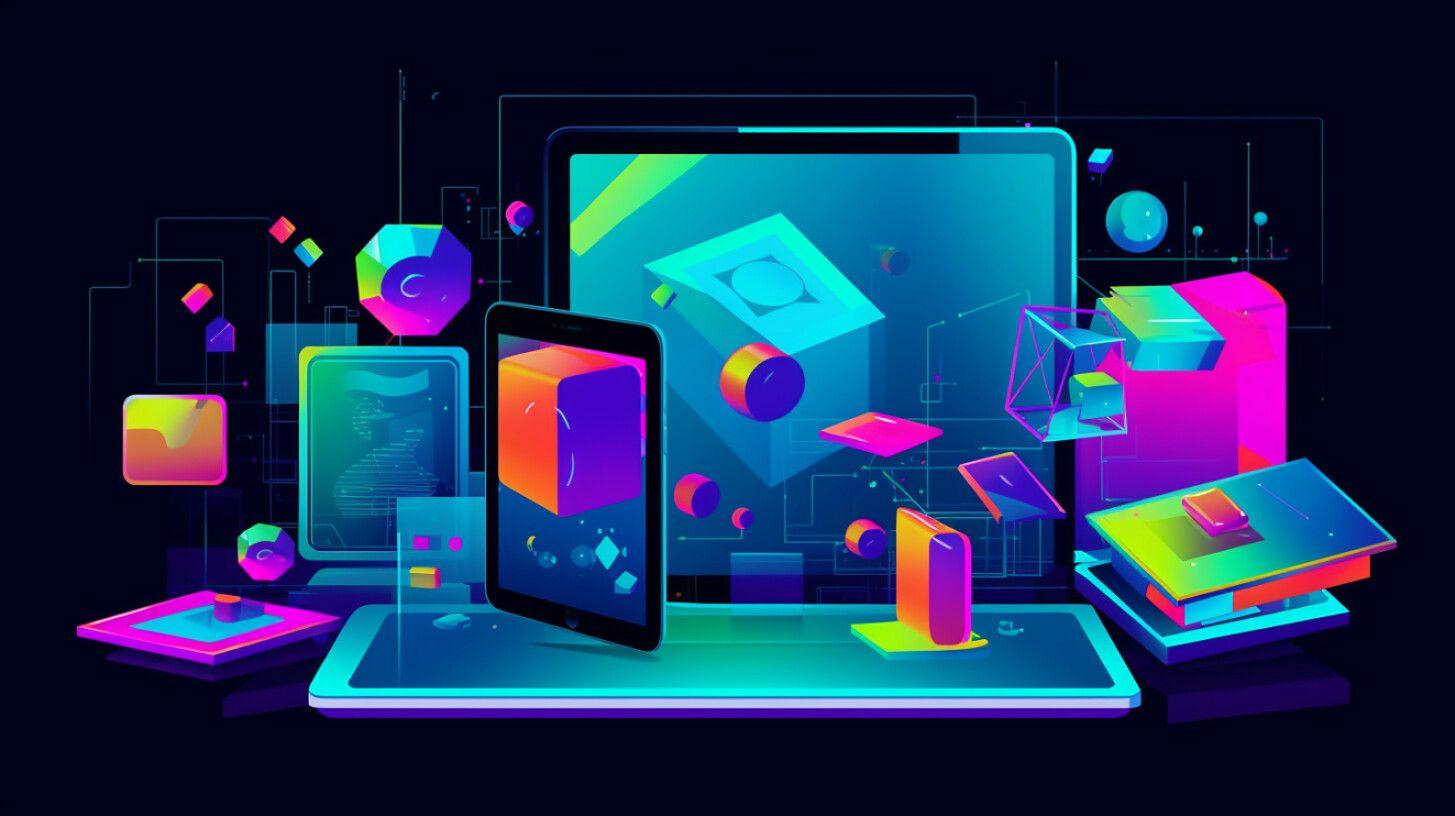Last Updated on 2025/02/23 by BrieferBob
Understanding Nanodegree Programs: Benefits and Opportunities
 Discover the benefits and features of nanodegree programs, an innovative educational pathway designed to equip students with industry-relevant skills. Unlike traditional degrees, these programs focus on specific competencies in programming, data science, and digital marketing. Accordingly, this allows for rapid skill acquisition.
Discover the benefits and features of nanodegree programs, an innovative educational pathway designed to equip students with industry-relevant skills. Unlike traditional degrees, these programs focus on specific competencies in programming, data science, and digital marketing. Accordingly, this allows for rapid skill acquisition.
Explore the advantages of hands-on learning, mentorship opportunities, and the alignment with current workforce needs. Needs that nanodegree programs offer. Learn about leading providers like Udacity, which partners with industry giants to deliver relevant and practical education that prepares students for successful careers in a competitive job market.
What is a Nanodegree Program?
 A nanodegree program is an innovative educational pathway that is designed primarily to equip students with specific skills and knowledge that are directly applicable to the job market. Unlike traditional degree programs, which often take several years to complete and provide a broad academic foundation, nanodegree programs focus on targeted skill acquisition in areas such as programming, data science, artificial intelligence, and digital marketing. This specialized approach allows learners to rapidly gain competencies that meet the demands of employers in an evolving digital landscape.
A nanodegree program is an innovative educational pathway that is designed primarily to equip students with specific skills and knowledge that are directly applicable to the job market. Unlike traditional degree programs, which often take several years to complete and provide a broad academic foundation, nanodegree programs focus on targeted skill acquisition in areas such as programming, data science, artificial intelligence, and digital marketing. This specialized approach allows learners to rapidly gain competencies that meet the demands of employers in an evolving digital landscape.
Key Distinctions of Nanodegree Programs
One of the key distinctions between nanodegree programs and more conventional forms of education lies in their structure and delivery. Typically, these programs are offered as an online course. As such, this enables students to learn at their own pace and accommodate various learning styles. The flexibility inherent in nanodegree programs makes them appealing to a diverse demographic, including working professionals and career changers who require an accessible, practical solution to enhance their qualifications without committing to a multi-year educational program.
Program Duration
Nanodegree programs usually span a duration of a few weeks to a year, which allows students to complete them in relatively short time frames. An expedited timeline is particularly beneficial for individuals looking to upskill quickly or transition into new roles. Each program is carefully curated, encompassing a mix of theoretical instruction and hands-on projects that mirror real-world scenarios. Hands-on practical experience ensures that students can apply the knowledge they gain. Consequently, graduates of nanodegree programs often find themselves well-prepared to meet industry expectations and contribute effectively in their chosen fields.
The Benefits of Enrolling in a Nanodegree Program
Enrolling in a nanodegree program presents numerous advantages. Such advantages are specifically tailored to meet the demands of today’s fast-paced job market. One of the prominent benefits is the strong emphasis on practical skills. Unlike traditional degree programs that may focus extensively on theoretical knowledge, nanodegrees prioritize hands-on learning experiences. A more practical approach that ensures that learners acquire applicable skills that are directly relevant to their chosen industry. By focusing on real-world projects, students can effectively demonstrate their competencies to potential employers.
Collaboration Involvement
Moreover, nanodegrees are designed in collaboration with industry professionals. Close collaboration ensures that the curriculum remains relevant and aligned with current workforce needs. This industry relevance positions graduates favorably in the job market, as they are equipped with the tools and knowledge that companies actively seek. As industries evolve, so too do the skills required. Udacity makes this adaptive learning model particularly beneficial for those looking to stay competitive. Graduates often report that their newly acquired skills enable them to transition more easily into new roles or advance in their current positions.
Skill Development
 In addition to skill development, learners of nanodegree programs benefit from robust support systems throughout their education journey. Many platforms provide mentorship opportunities, access to career services, and chances to engage with fellow learners who may offer valuable insights and networking possibilities. Such connections can lead to job referrals and collaborations, enhancing career prospects significantly. Furthermore, graduates frequently experience salary increases post-completion of their program, reflecting the value that employers place on those who have pursued this alternative form of education. This combination of practical training, industry alignment, and professional support illustrates why enrolling in a nanodegree program can be a strategically sound decision for career advancement.
In addition to skill development, learners of nanodegree programs benefit from robust support systems throughout their education journey. Many platforms provide mentorship opportunities, access to career services, and chances to engage with fellow learners who may offer valuable insights and networking possibilities. Such connections can lead to job referrals and collaborations, enhancing career prospects significantly. Furthermore, graduates frequently experience salary increases post-completion of their program, reflecting the value that employers place on those who have pursued this alternative form of education. This combination of practical training, industry alignment, and professional support illustrates why enrolling in a nanodegree program can be a strategically sound decision for career advancement.
Diverse Topics Covered by Programs
Nanodegree programs have emerged as a prominent educational pathway, providing students with the opportunity to acquire specialized knowledge across a plethora of fields. Globally, there are over 43,000 available nanodegree programs, reflecting a dynamic and continuously evolving educational landscape. These programs are designed not only to cater to traditional disciplines but also to address the needs of modern industries. Just a couple of examples are;
- Business Analytics
Among the diverse subjects offered, business analytics stands out as a crucial area of study. This field equips students with analytical skills necessary for making informed business decisions based on data interpretation. Similarly, digital marketing has gained significance as businesses increasingly leverage online platforms; nanodegree programs in this area cover essential topics such as search engine optimization, social media marketing, and content strategy.
- Machine Learning
Furthermore, machine learning has garnered attention as an innovative discipline poised to revolutionize technology and analytics. Nanodegree programs focusing on machine learning delve into algorithms, neural networks, and practical applications, making it essential for professionals seeking to remain relevant in a technology-driven workforce. Data services also play a pivotal role, encompassing data management, warehousing, and analysis, addressing the growing demand for expertise within data-centric industries.
Additional Programs Available
- Artificial Intelligence
In addition to these established fields, mobile application development—covering both Android and iOS platforms—is vital in the current tech landscape, ensuring that developers possess the skills to create versatile applications. The exploration of emerging fields, particularly artificial intelligence, signifies the vast potential of nanodegree programs. As companies invest in AI technologies, professionals with specialized knowledge in this area are increasingly sought after.
Ultimately, the variety of subjects available through nanodegree programs underscores their adaptability and relevance in addressing contemporary educational and professional requirements, thus offering practically unlimited options for future students.
Leading Providers of Nanodegree Programs: A Focus on Udacity
Udacity has emerged as one of the foremost providers of nanodegree programs in the modern education landscape. Founded in 2011 by Sebastian Thrun, David Stavens, and Mike Sokolsky, the platform initially began as a way to offer free online courses. Over time, it evolved into a premier destination for those seeking industry-relevant skills and knowledge. With a commitment to bridging the skills gap for aspiring professionals, Udacity’s nanodegree programs cater particularly to fields such as data science, artificial intelligence, programming, digital marketing, and more.
The Uniqueness of Udacity’s Programs
The unique structure of Udacity’s programs emphasizes collaboration with leading technology companies. Notwithstanding, companies like Google, Amazon, and IBM. This industry-driven approach ensures the curriculum remains current. It also aligns closely with the specific competencies employers seek. As a result, students receive insights directly from industry experts. This advantage makes the learning experience truly applicable to real-world scenarios. Moreover, these partnerships facilitate exclusive content and job placement support, enhancing the overall value of Udacity’s offerings.
One of the standout features of Udacity’s nanodegree programs is the focus on hands-on projects. Each program is designed to culminate in practical applications of the skills learned. This allows students to create a robust portfolio that showcases their technical abilities. Still, the experiential learning is further enriched by mentorship opportunities. Opportunities where students can receive guidance from professionals in their desired field, significantly improving their learning outcomes.
In light of its innovative educational approach and commitment to quality, Udacity has garnered significant recognition among learners. By prioritizing industry relevance and fostering a practical, engaging learning environment, Udacity continues to lead the way in the realm of nanodegree programs. As the demand for skilled professionals in technology grows, platforms like Udacity remain vital in preparing individuals for a successful career in an increasingly competitive job market.




